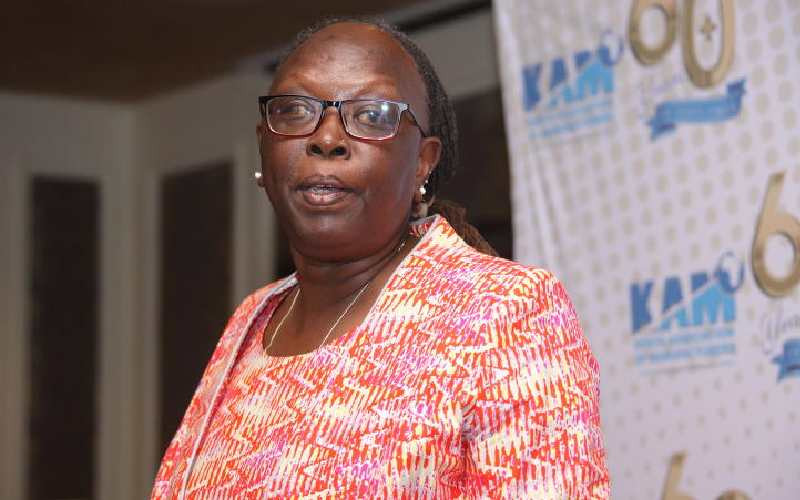×
The Standard e-Paper
Kenya’s Boldest Voice

Outgoing CS Ministry of Industrialization Trade & Enterprise Development Ms. Betty Maina. [Wilberforce Okwiri, Standard]
The government, through the standards body, is extending an olive branch to micro, small, and medium enterprises (MSMEs) even as it pushes them to embrace the certification of their products.







